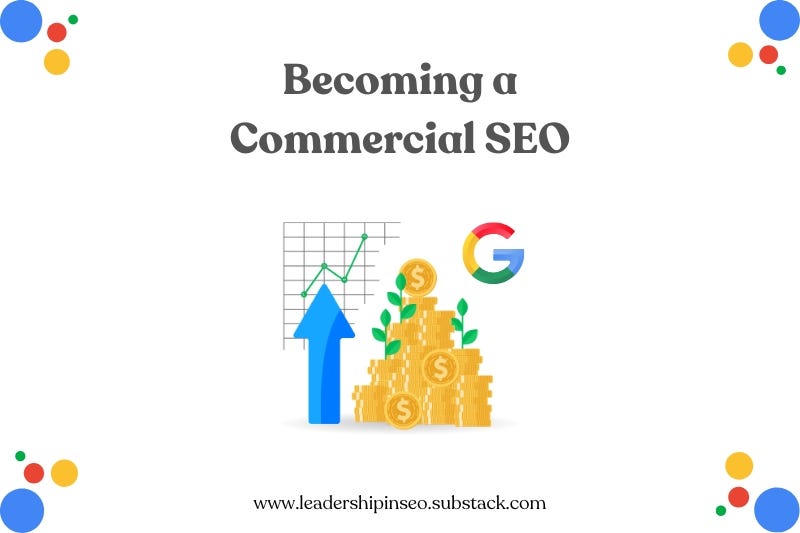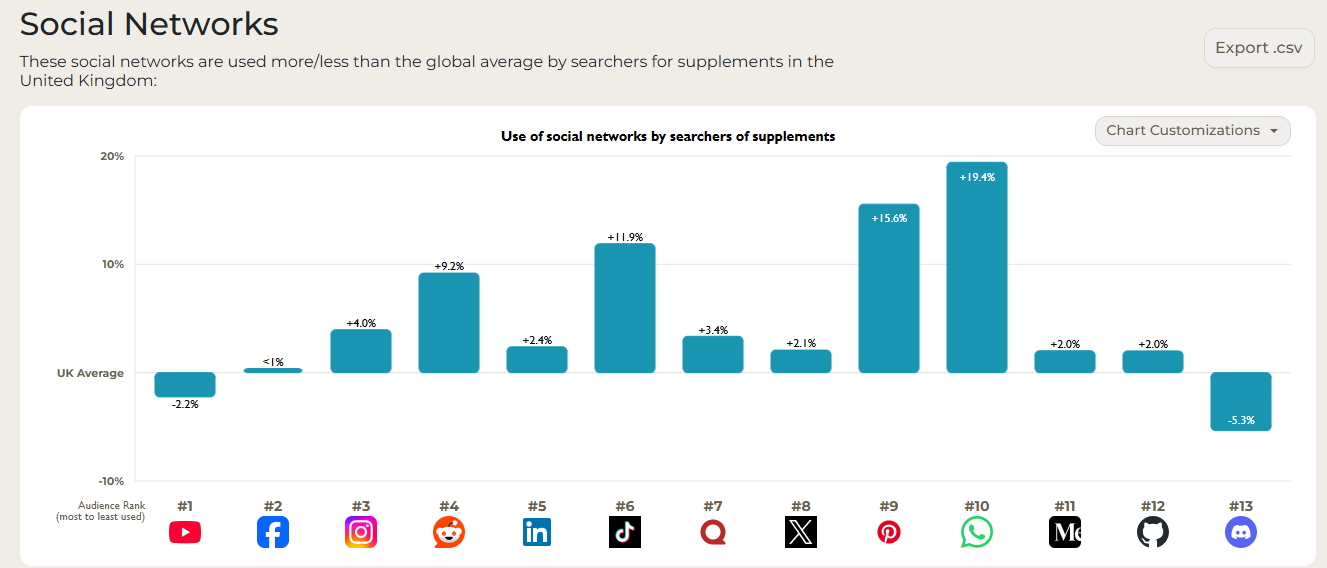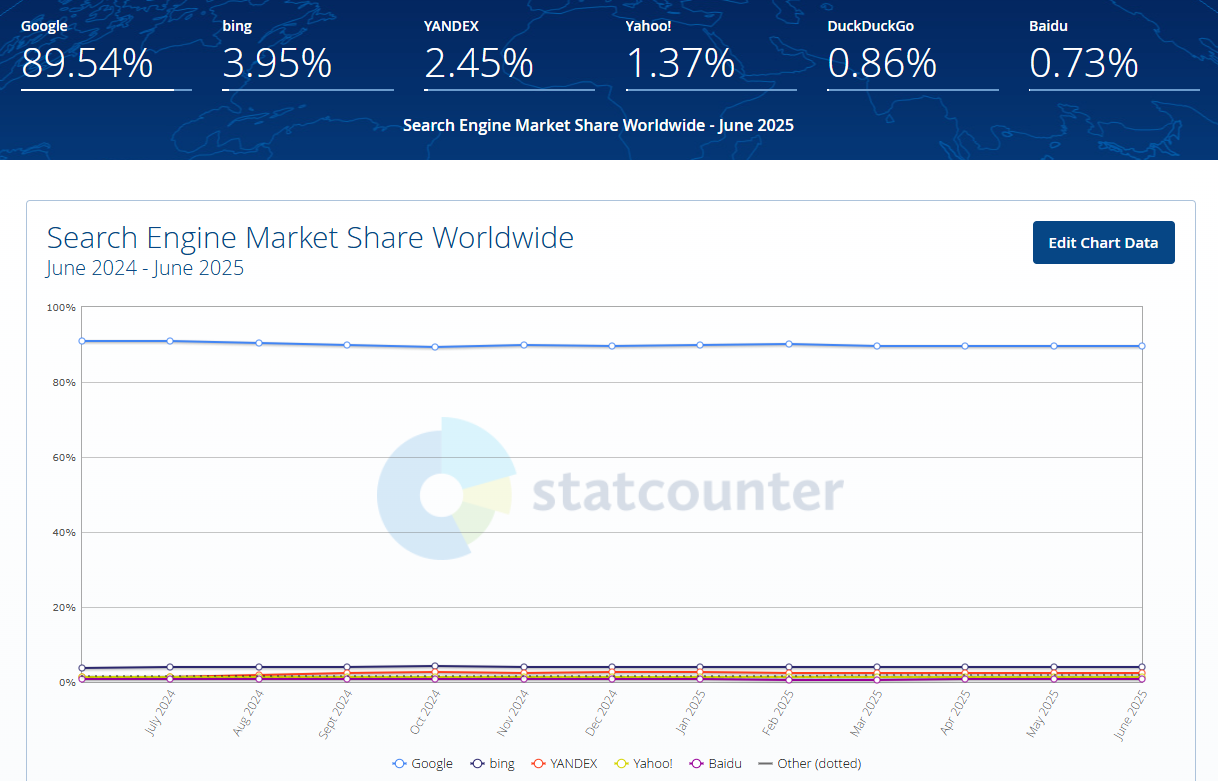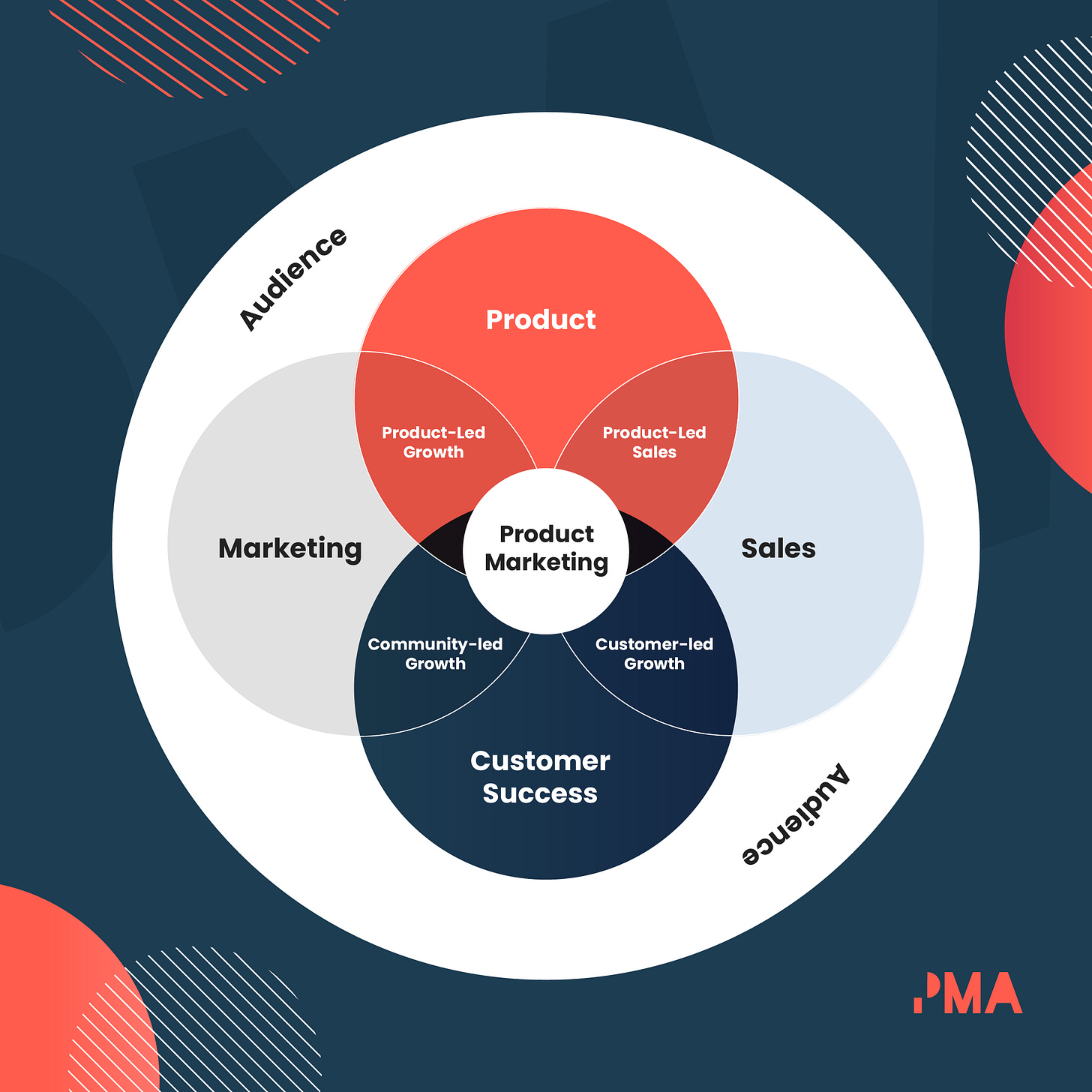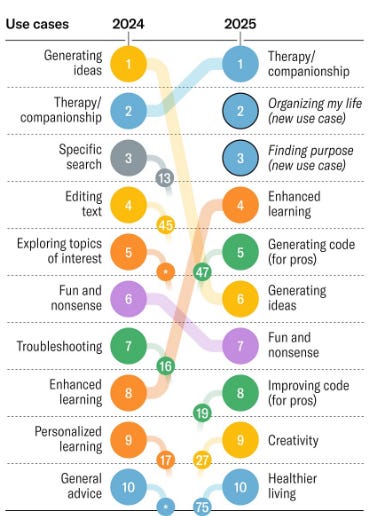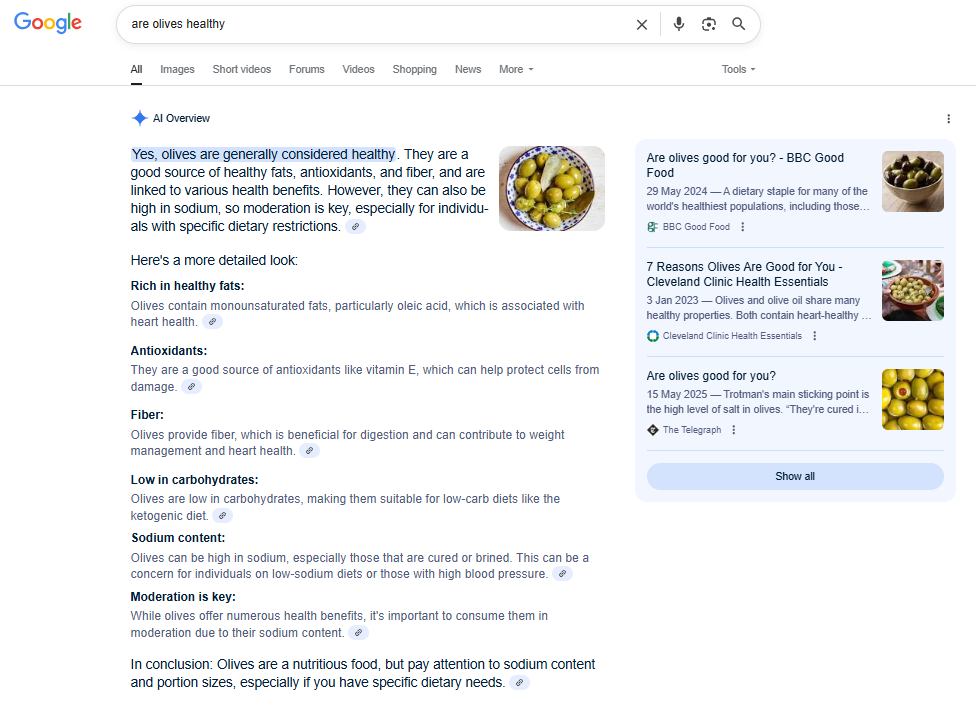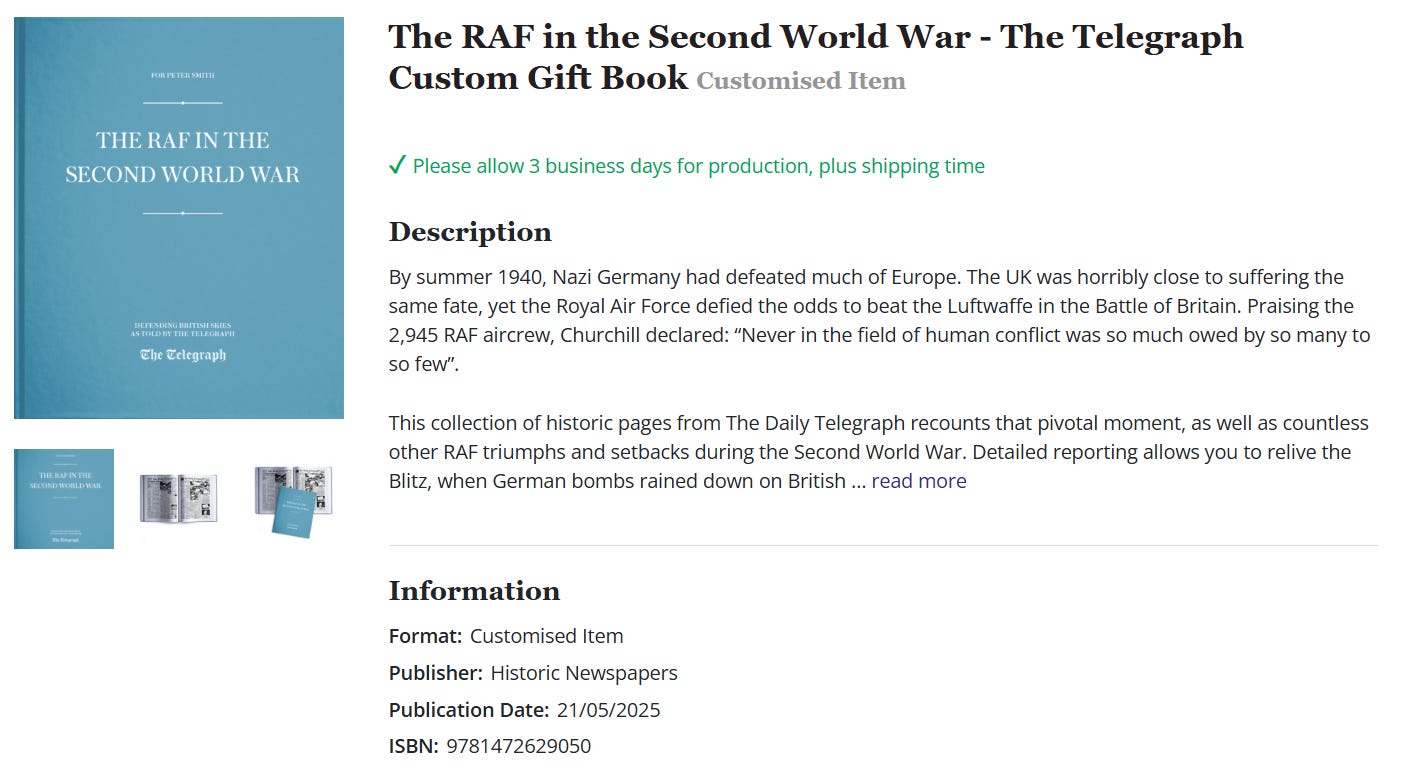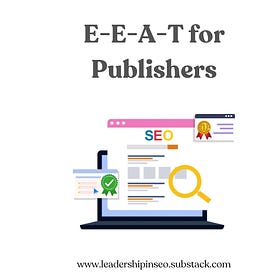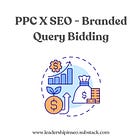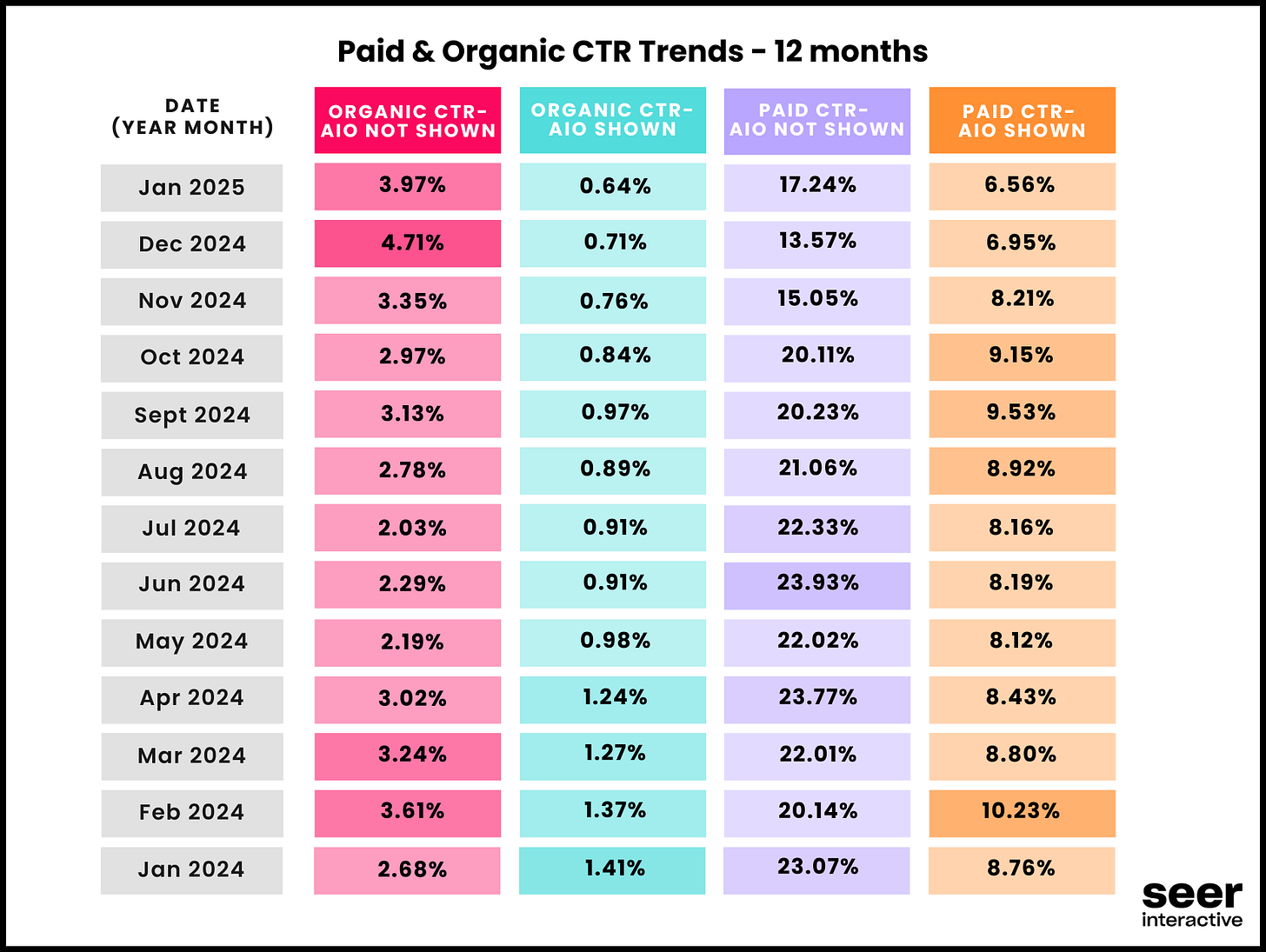Becoming a commercially minded SEO (make more money)
Businesses care about revenue. Profit and loss. Not clicks and impressions. Parsing SEO into commercialised chatter can boost your career prospects.
TL;DR
SEO has always had a compounding effect. We build evergreen assets. Like IP that appreciates in value over time
For every project think - ‘how can I make this generate more value’
SEO doesn’t have the same shine to it once did in board meetings. You absolutely have to bring people along for the ride
You can stand above your peers by having a better understanding of how your business functions fiscally
Things are changing
I’m not going to go over this anymore. I’m sick of blithering on about zero click searches and the rise of hallucinogenic robots. But I am pleased that Google have something vaguely resembling a challenge.
Pleased might be the wrong word, but I can feel something stirring. Even if their response to the challenge has been a little reckless and arguably brain-dead.
But forget that. I don’t care about that. Well, not entirely true. But this change is largely out of our control. The more time we spend sweating about this, the less energy we have to spend on things that matter.
It increases the chances of bad decisions being made.
What should we do?
Our job.
We should be prepping all areas of our company for whatever impending level of beige-ness is coming.
Editorially, that’s easy. Well, easy ish. Tighten down on your key topics. Build topical authority. Identify other valuable channels. Double down on digital PR and brand awareness in the right places. Be truly audience first.
But commercially, what’s happening? Or what’s going to happen? If I may muse a little here…
Ads are more expensive - Average CPC across all industries increased by 12.88% from 2024 to 2025
Audiences are spending more time on other platforms
Some publishers are signing deals with some of the bigger AI players
Google’s market share is under 90% (but still basically 90%)
And Google still handles 373 times more searches than ChatGPT…
Essentially, it’s harder and more expensive to accrue customers across the board.
Brands that don’t have a genuine audience are in trouble (you really have to build a brand). They’re probably going to die out. Fewer publishers lead to fewer advertising opportunities for brands that don’t just sell their content as a product. Brands that sell physical goods or tours or fucking anything.
Literally anything.
Where are they going to generate sales from? Where can they get brand awareness?
Do we really think that these brands are going to transform perfectly here? Even adequately?
They’re going to be a fish out of water. Desperate for help and guidance. As surviving publishers and SEOs, we need to think outside the box. How can you create an offering that would be attractive to them?
Could they benefit from user testing panels? Could you sell those?
Are you considering running more IRL events that could use sponsorship?
Have you started podcasting? Do they know that?
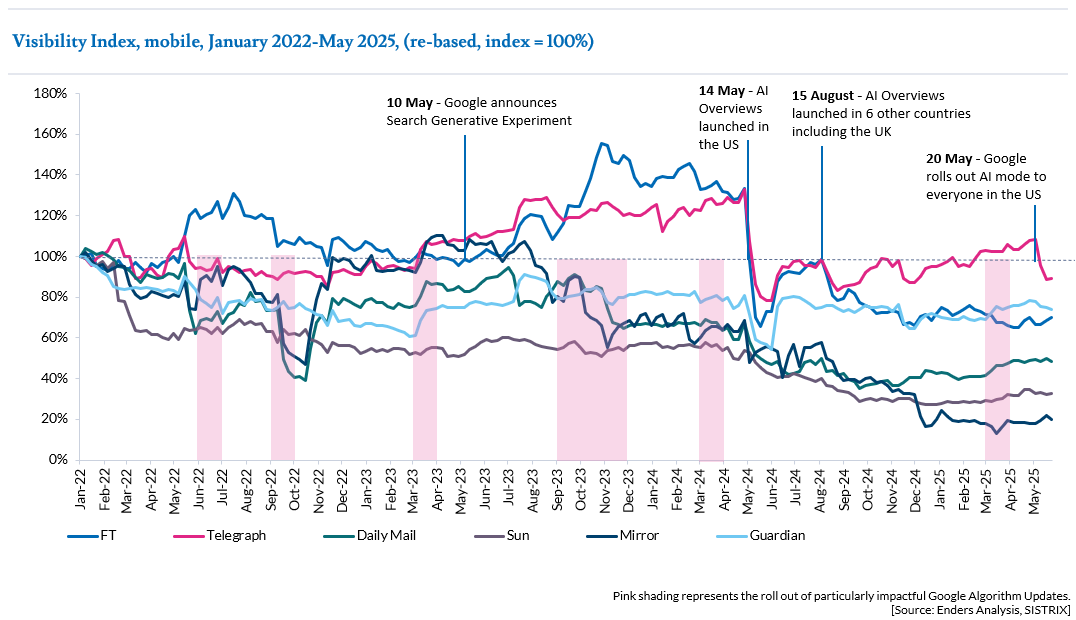
You’ve seen the rise of GEO and AEO experts peddling their drivel for a quick buck. Think like them, but intelligently.
If there’s one thing most of us are not good at, it’s product marketing. It’s such an effective commercial skillset to have. In this scenario, it works both ways.
Think of your audience as a product. People yes. But a product.
Can you turn them into a sellable commodity? Or help your commercial team do that? An enticing proposition for a business that suddenly can’t leverage publishers like they used to?
Whatever you do, remember to bring people along for the ride. Craft a compelling narrative that highlights the problem and identifies a solution.
But what is our job?
Our job is to make money. That’s it. To steer the company in the right direction.
Yes, yes. Clicks, traffic, conversion rate blah blah blah. But our job is to generate revenue. Free traffic if you want to use a phrase I hate. It’s one of the reasons why we have been such a fulcrum of businesses everywhere and anywhere for the last decade or more.
AI doesn’t change that. We’ll get less traffic (reminder that’s been happening for a long time), but our skillset is - in my not so humble opinion - some of the most valuable in any and every company.
The best in house SEOs sniff out opportunities to drive revenue. Probably via clicks, sure. But they identify content that could drive genuine revenue. Maybe they size up go-to-market opportunities for commercial teams, or optimise high converting pages effectively.
Ideally, before it’s launched. But for any of you who work for big publishers, this is something of a pipe dream.
If you make sure you know more about the website than anyone else at the company - size, crawlability, speed, content clusters et al - you will always be in demand.
Becoming ‘more than an SEO’
You need to become indispensable. Trust me when I tell you the prevailing narrative about SEOs isn’t necessarily positive. At a senior level at least.
Executives who don’t know how to delete their browsing history are telling anyone who stands still for long enough.
“I knew it all along. Search is dead. LLMs are the future. Nobody uses search anymore. Or something.”
Shame that people truly searching with LLMs is on the wane. Almost like it isn’t a replacement. It’s an alternative. Interesting.
Oh yes, and based on Glen Gabe’s very good analysis, LLM traffic makes up just 1% of the total. 1.
The reason so many people are espousing the values of AI and LLMs in search is that they’re trying to sell something. Their services with GEO or AIO stuffed into the title are significantly more valuable as a proposition. But it won’t last forever.
Can’t blame them. The game is the game. But do the things that have always worked - create great content. Content that solves problems and speaks to your audience. Be bold.
It still works.
There comes a point in your career where you have to make something of a choice. You can dive headfirst into the more technical side of SEO.
I think a tech/product SEO hybrid position will be worth big money in the future. Super interesting too.
You can head further down the content/editorial/audience route. Also a great option. Particularly at a publisher.
Or you can dive deeper into the more commercial side of the role. Something a little more business-y. Something I suspect some of you might’ve been doing for some time without realising it.
Behold, the rise of the commercial SEO
Someone who knows the good, the bad and the ugly about the website. Who knows exactly what the Product and Tech teams are working on. Is able to steer them in the right commercial direction and can make the most of projects and products the business is working on.
We know more about the website and the wider web than anyone else (you can thank the wider community for that). Ditto forecasting, demand and market sizing.
The traffic we drive has long been so valuable that everyone wants a piece. And you can use that to your advantage. Bring people along for the ride. Share of voice. Market share. Quality reporting. It’s a great way to get included as part of the decision making process.
Navigating AI Mode for Publishers
This may well be one of the defining moments in your career. All of ours. Navigating it calmly and thoroughly will be a real feather in our cap(s).
Developing a Commercial Mindset
For lots of us, this means stepping outside of our comfort zone. There are no canonical tags here. It’s cold, hard cash only. That’s the currency we trade in now. Commercial intent sucker.
But how? I like canonical tags. They make me feel safe.
I know they do, but it’s time to graduate. It’s time to position yourself as a strategic business partner. Become a key contributor to the overall business strategy and revenue generation rather than just an SEO.
Here are some commercial non-negotiables that will impress execs who, unsurprisingly, can only really care about the bottom line;
Do you have a clear grasp of what it takes to satisfy customers
Can you distill complex SEO shit into simple business ‘if we do x, we get y’ for people who have no idea what the fuck we’re doing half the time?
Do you understand your users? Have you really taken the time to understand what your community need beyond keyword research? Are you solving their pain points?
Prioritise value over volume. Drive valuable traffic that converts to subscribers, affiliate sales, or engagement with EIPs. Not just traffic.
Diversify. Look beyond traditional revenue models and explore new income streams.
Example #1
We recently launched a ‘best pubs’ tool. It’s excellent. Really. There are very obvious SEO issues we’re working on solving - custom location-specific landing pages as an obvious example. There’s so much more we can do with repromotion with a richer, user-first experience.
But let’s not think about SEO for a second. Let’s think about revenue opportunities. I don’t mean advertising or subscriptions. This feels like a perfect coffee table book. As a business, we have always created custom books. Headlines, cartoons and key themes our audience loves.
I’m not saying this is going to make us millions. But we have a pre-existing infrastructure to do this and it suits our audience down to the ground.
As a one-off project, it’s small. As a mindset, it’s powerful.
Example #2
Lots of publishers have paid subscribers. Ourselves included. It's probably the only sustainable business model left for publishers. But as we’ve already monetised this audience, short of selling them other subscription options, what more can we do?
We can monetise our them as a product.
We can package our audience up and sell to other businesses. Businesses need good partners. They need spaces and opportunities to reach an engaged and relevant audience. In a post-AI world, publishers with large and engaged audiences can offer that service.
Particularly large publishers who have audiences in multiple sectors. Sport, business, money, tech etc. These audiences could be poles apart with just one thing uniting them across all fronts. For us, that’s likely to be disposable income.
No other alternatives, please.
An IRL example. We have a large ish product reviews section of our website. This requires a significant amount of product testing. Something we might could involve our own users in.
If we did this, we would have cohorts of product-specific user panels. Engaged audiences in tech, household goods etc. I am confident that companies would pay good money to have their products tested and reviewed by these panels.
Example #3
Inventory management. Reviews. Net profit. These are real life business metrics ecommerce stores live and die by. Not traffic.
By understanding how money flows through the business, we position ourselves properly. SEOs should be able to optimise products driving real value. Not just traffic. We should be able to pivot quickly.
If a product generates more high-quality reviews than others, shouldn’t we make it as valuable as possible? Ditto products that have a surplus of inventory. Or that drive the best net profit.
We shouldn’t just be optimising pages because they can drive more traffic than others. We should be doing it because it impacts the business’s bottom line.
Mastering EEAT for publishers
The SEO world’s favourite, ambiguous acronym unravelled before your very eyes.
Why does this matter now?
Nothing happens in a vacuum.
Look at this data on CTR trends from Seer Interactive. The increase in AIOs has caused the CTR of PPC campaigns to drop.
You might look at it and think, why would I care about paid?
Because it matters to the business and your customer acquisition value. This is too important not to consider commercially. If paid CTR drops, the cumulative cost of a conversion increases. Your CPA decreases. It costs more to generate a customer.
That matters. It matters to the business. It matters to search. Obviously it matters to the paid team. But it impacts your bottom line.
One of the biggest issues almost every big company has is department siloes. Pretending things do happen in a vacuum.
But you can solve that.
Other resources
Soft skills to master for SEO - WTF is SEO
Why semantic HTML still matters - Jono Alderson
As always, leave a comment. Let me know what you think. I will do a part 2 on this soon.



